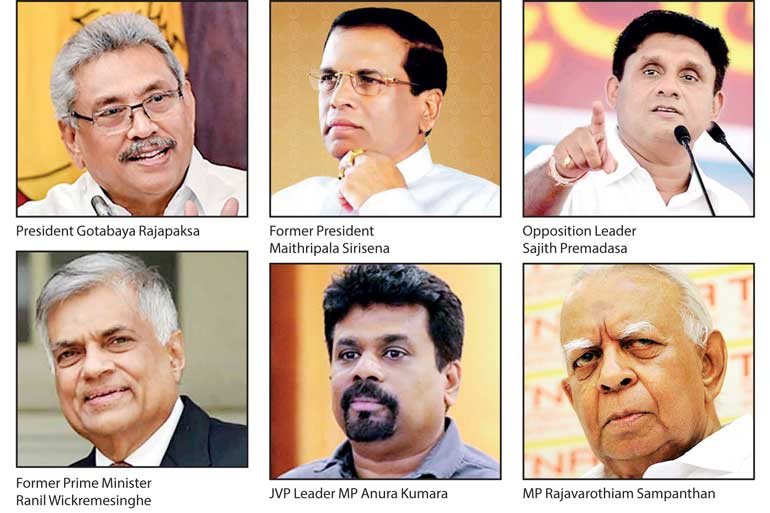Sunday Feb 15, 2026
Sunday Feb 15, 2026
Wednesday, 23 March 2022 00:25 - - {{hitsCtrl.values.hits}}

One of the privileges of being a government minister is that you have public servants paid by the taxpayers at your disposal to do the work that ordinary citizens have to do day in and day out. Including staying in a queue for hours to get fuel. This is very common in the developing world. Exceptionally, you get a few politicians like the President of Uruguay Jose Mujica who drove an old Beetle along the streets of his country. Nothing changed for him as President. There have been a few others.
taxpayers at your disposal to do the work that ordinary citizens have to do day in and day out. Including staying in a queue for hours to get fuel. This is very common in the developing world. Exceptionally, you get a few politicians like the President of Uruguay Jose Mujica who drove an old Beetle along the streets of his country. Nothing changed for him as President. There have been a few others.
Today, Sri Lanka is facing the biggest economic crisis since independence. We had a similar set back in 2001, but it was never so acute where one had to stay for hours in a queue for fuel, medicine or milk or be out of power for five hours daily. Conservative estimates are that Sri Lanka will run a deficit around $ 9 billion in 2022. Now how do we bridge this?
Forex market
The black market for foreign exchange keeps rising despite the devastating devaluation of over 30% in a day, worse than even what the war-torn Afghanistan underwent, which was 11%, and the currency recovered fast. To add to our woes the current economic crisis can get far worse if there is an escalation of hostilities in Ukraine. So, what do we do as a country to make available the key essentials for the public? With the humongous devaluation of the LKR, prices of every item have seen an increase of over average of 30% overnight. Exams have been cancelled because of no paper.
As the vocal economist Dr. W.A. Wijewardena points out, “The present collapse of the rupee has not been totally unexpected. For many months, independent analysts had warned the Government and the Central Bank about its insane attempt at fixing the rupee-dollar rate at 200 at mid-level without a supportive foreign exchange reserve. But the Bank had adamantly maintained and misled the President too that it had enough resources at hand to keep the rate at that level and there was no necessity for Sri Lanka to seek IMF support or work on restructuring the country’s foreign debt. Ex-Governor W.D. Lakshman ascribed this to following an alternative policy measure which only he knew of.”
Further Dr. Wijewardena notes, “If the Bank could not supply foreign exchange to the market at the given rates, the result was either the rate had to move up or allow the development of a black market dealing in foreign currencies. Since the Bank did not want a black market to develop because it is the worst enemy of a central bank, it allowed the rates to go up by widening the margin between its buying and selling rates from time to time.” This black market has now become a cancer for the financial sector. It is slowly eating into the stability of every sector.
All-party effort
Unfortunately, for the Government other than some ministers, no one has confidence the Government has the skills and competence to take Sri Lanka out of this crisis. The Opposition and the public who have spent hours on the road want the Government to go home. But this is a democratically elected government. 6.9 million voted for them. It is they who should take the responsibility. No point in blaming the Rajapaksa family. The former five times Prime Minister Ranil Wickremesinghe forewarned the Government of this crisis, on the day he entered parliament in 2021; the Government however took little notice. Instead, the public ridiculed him for not prosecuting the Rajapaksas for their excesses in the previous administration. The Easter Sunday attacks were the beginning of our misery.
Recently Wickremasinghe has said very loudly that given the unprecedented crisis with no end in sight, that “there must be a national consensus on the basic principles needed for this. There is no national consensus in our country. One Government changes what the other Government did. If we do not look to the future and move forward there will be no future.”
The country desperately needs an all-party council to take key decisions from now on; it cannot be left only in the hands of the Rajapaksa coterie. Our nation’s future is at stake, it is not only theirs. All political parties have failed the people, therefore at least now they must rise up and save the day for our future generations. It is no longer the “job” that should matter to our politicians.
IMF bailout
So, what do we do? Going to the IMF would provide us an opportunity that would allow the country to seek the assistance of other friendly foreign nations and agencies who are willing to help, but who want a structure and good governance; they are not interested in propping up personalities who have failed the people on all sides. We need all our political parties working together to take measures to revive our failed economy. Including the setting up of an international development forum. We need to negotiate an immediate financial facility with the IMF, that cannot wait any longer given the situation we are currently in, we need to increase interest rates to manage the forex market and manage inflation and our tax structure needs order.
As Dr. Wijewardena points out, “President Gotabaya Rajapaksa last week was vague about the Government’s seeking a funding facility from the IMF immediately. That confusion will make the foreign investors more confused. It could not make a significant turnaround in the falling prices of ISBs out there in the market.”
The generous Indian bail out will be good for one or two months given that we celebrate the New Year next month. Ironically, what happens when that money runs out? Run to China? Japan? USA? Therefore, given the current public sentiment, it is important for national consensus to be reached now and an economic recovery program signed by all political groups, to prevent one or two people taking decisions anymore; we cannot be at their mercy anymore.